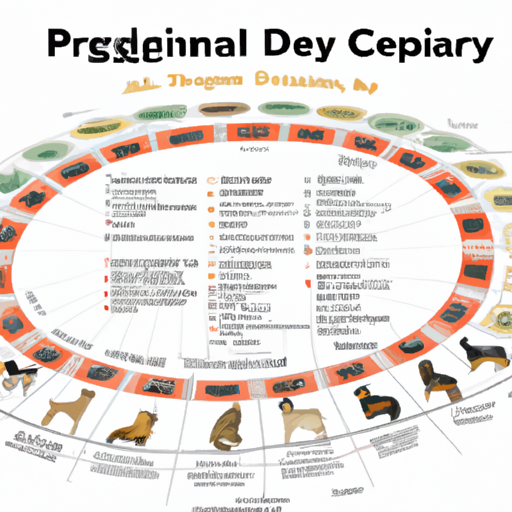Understanding The Basics Of Dog Pregnancy
You’re probably wondering, just how long are dogs pregnant for? Well, the average gestation period for dogs is around 63 days, although this can vary by a few days depending on the breed and individual circumstances. It’s crucial to understand that this is a pivotal time in your dog’s life, and as a caregiver, you have an essential role to play.
- Early Pregnancy (0-20 days): During this phase, fertilized eggs travel to the uterus for implantation. You might not notice any overt physical changes, but hormonal shifts are already occurring.
- Embryogenesis (21-28 days): This is when embryos begin to take form. Some early signs of pregnancy, such as increased appetite and lethargy, may start showing.
- Fetal development (29-45 days): The fetuses grow rapidly, and the mother’s belly starts to expand. You might observe behavioral changes.
- Final stages (46-63 days): The puppies are fully formed but still growing. The mother may start nesting behavior.
Changes In Your Dog’s Behavior During Pregnancy
Much like humans, dogs also exhibit certain behavioral changes during their pregnancy. As a caregiver, it’s important for you to understand these changes and provide the necessary care and support.
- Increased appetite: Your dog may start eating more than usual.
- Lethargy: Don’t be surprised if your otherwise active dog starts to slow down.
- Nesting: Towards the end of the pregnancy, your dog may start preparing a safe space for the impending birth.
Tips For Caring For A Pregnant Dog
Providing the best care for your pregnant dog is no small task, but it’s certainly a rewarding one. Here are some tips:
- Diet: A nutritious, balanced diet is crucial. You might need to gradually switch to a high-quality, veterinarian-approved puppy food in the later stages of pregnancy.
- Exercise: Regular, gentle exercise like short walks can help keep the mother healthy.
- Veterinarian Visits: Regular check-ups are essential to monitor the health of both the mother and her puppies.
| Tips | Description |
|---|---|
| Diet | Nutritious, balanced diet |
| Exercise | Regular, gentle exercise |
| Vet Visits | Regular check-ups |
Potential Complications And How To Handle Them
Though most dog pregnancies go smoothly, it’s important to be aware of potential complications. Be vigilant and look out for any signs of distress in your dog. If you notice anything unusual, don’t hesitate to contact your vet.
- Premature labor
- Difficulty giving birth (dystocia)
- Infections
Frequently Asked Questions
Q: How can I tell if my dog is pregnant?
A: Early signs include increased appetite, lethargy, and a slight increase in weight. Later, you’ll notice a swollen belly and nipples.
Q: How long does a dog’s pregnancy last?
A: On average, a dog’s pregnancy lasts about 63 days.
Q: What should I feed my pregnant dog?
A: A balanced diet is essential during this period. Your vet may advise you to switch to a high-quality puppy food in the later stages.
Q: When should I take my dog to the vet?
A: Regular vet visits are crucial during pregnancy. If you notice any signs of distress or complications, contact your vet immediately.
Remember, your role as a caregiver is to provide a safe and comfortable environment for your pregnant dog. Equip yourself with the right knowledge, and the journey will be a rewarding one.



